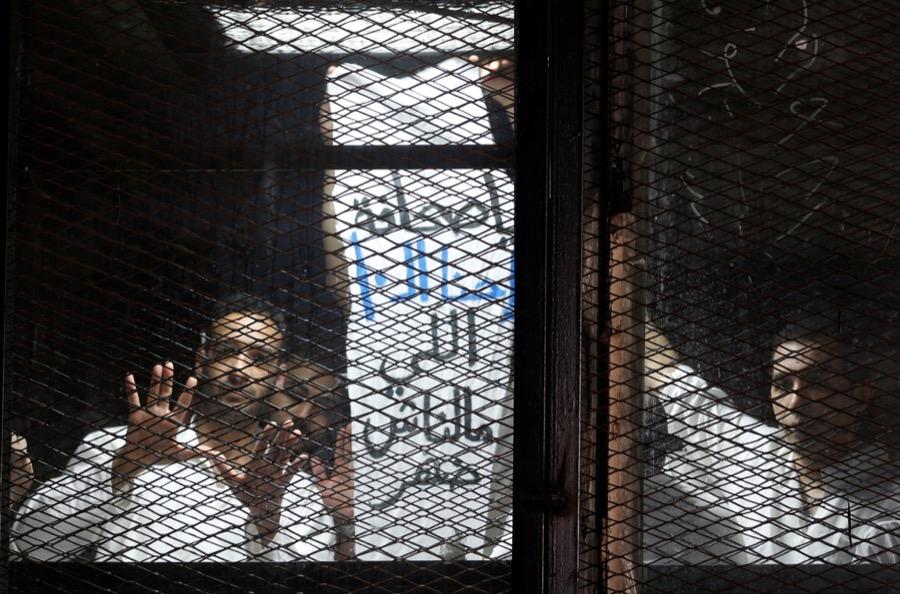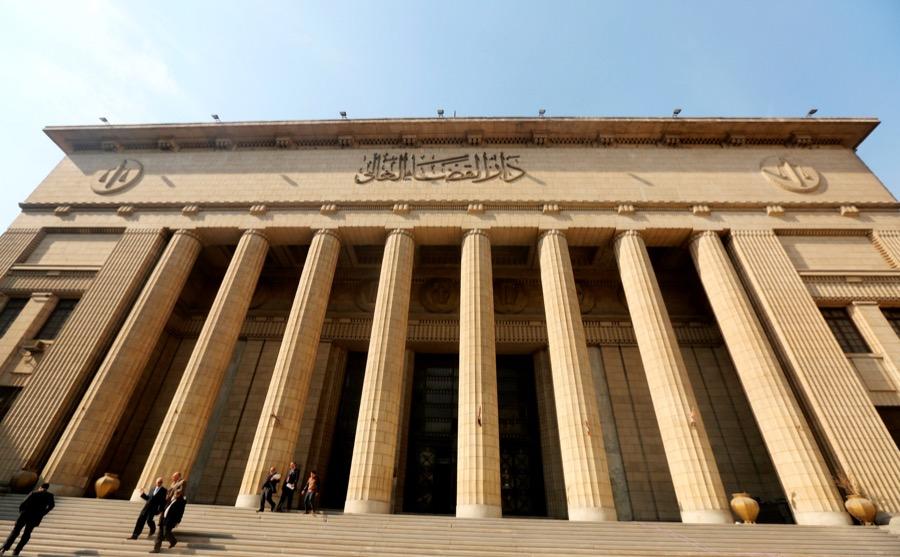The Egyptian ruler Trump calls ‘fantastic’ is now strengthening his power over the courts
A view of the High Court of Justice in Cairo, Egypt.
On the eve of Pope Francis’ historic visit to Egypt last month, Egyptian President Abdul Fattah al-Sisi quietly ratified reforms giving him new powers to make top judicial appointments — a move that judges and rights groups say threatens the remaining independence of the courts.
The amendments to the judicial authorities law allow the president to pick the heads of four leading judicial bodies from three nominees put forward by the relevant councils.
This replaces the old system where the judicial councils named a single candidate only: normally the most senior member. The president had the final say, but his approval was largely a formality.
The move came on April 27 — just weeks after US President Donald Trump welcomed Egypt’s strongman to the White House and praised him for doing a “fantastic job in a very difficult situation.”
The official reason for the amendments is to help President Sisi effectively fight terrorism. But analysts say the security argument is often employed by Sisi and his supporters to justify and widen a crackdown targeting civil society, political opponents, journalists as well as judges.
The amendments are “endangering the judiciary,” said veteran judge Mohamed Hamed al-Gamal, the former head of Egypt’s State Council, one of the courts affected by the changes. “One of the foundations of judicial independence is that the judiciary be able to appoint and promote its members.”
The parliament, full of Sisi supporters, swiftly passed the amendments with a two-thirds majority on April 26. Immediately after, Egypt’s Judges’ Club — which acts as the de facto representative for judges in the country — issued a statement urging Sisi to reject the amendments. He signed it into law the next day.
Related: These young Egyptians led a revolution. Now their frustrations are mounting under Sisi.
“The proponents of the law are attempting to make the case that if President Sisi doesn’t have full control over the judiciary then the terrorists will win,” said Brad Youngblood, head legal and political researcher at the Tahrir Institute for Middle East Policy.
“The regime has used this tactic of securitization in other aspects of its rule as well, including linking foreign funding for NGOs to international spying and linking independent reporting on government actions to terrorist propaganda,” he said.
The regime had previously used accusations of ties to the outlawed Muslim Brotherhood (designated a terror organization under Sisi), or of involvement in political activities, to oust noncompliant judges. Youngblood noted that the “securitization” argument is fairly new.
The year before he was elected president in 2014, Sisi led a military ouster of Egypt’s first democratically elected leader, the Muslim Brotherhood’s Mohammed Morsi. Since Morsi’s removal, human rights groups estimate at least 40,000 political prisoners have been detained.

Critics argue that rather than making Egypt safer, recent deadly attacks on Coptic churches for example are signs the Sisi administration’s strategy is failing — or worse, that abuse and mass imprisonment could even be helping the terrorist cause.
As for the courts, observers say a large number of cases are politicized. Take the high-profile case of Aya Hijazi, an Egyptian-American humanitarian worker who was jailed for three years in Cairo on charges that were widely condemned as politically motivated. A court acquitted Hijazi and her co-workers in April, following months of engagement by both the Obama and Trump administrations.
Related: American charity worker in Egypt is acquitted after three years in jail
Sisi has always denied interfering in judicial affairs.
However, two of Egypt’s top courts at least demonstrate a semblance of judicial independence. And both are now affected by the new law, which some regard as an attempt by Sisi to bring them into line.
In June last year, Judge Yehia al-Dakroury issued a ruling in the Court of Administrative Justice blocking the government’s decision to cede control of two Red Sea islands to Saudi Arabia, causing a headache for Sisi.
Separately, Judge Anas Omara overturned mass death penalty sentences in the Court of Cassation, including for Muslim Brotherhood members.
Related: Some Egyptians are comparing Trump to an unlikely, Islamist figure
It’s widely thought the real aim of the new amendments is to prevent judges Dakroury and Omara from gaining leadership positions — both were next in line to head their respective courts. There’s a danger Sisi might “appoint pro-government judges” to these two bodies, warned Ahmed Mohamed from Amnesty International.
Ihab al-Khouly, a member of the parliament’s Legislative and Constitutional Affairs Committee that first proposed the law, denied the amendments were about the two judges. “We made this law to fix the judicial system,” he said.
Khouly dismissed concerns over the courts’ independence, because the law doesn’t enable the executive to interfere in trials and verdicts. He insisted the new system doesn’t differ much from the old one, given “the president was already appointing the heads [of the judicial bodies].”
Although initially rejected by all but one of the judicial authorities in question, according to local press reports, judges have decided not to resist the new amendments for now. All are expected to put forward leadership candidates, including the names of Dakroury and Omara.
Not everyone is ready to accept the law so quickly, though.
Lawyer Essam el-Islambolly has already filed a complaint against the amendments in an administrative court.
It must be challenged, he said, because it’s “a crime against the constitution.”
Salma Islam reported in Cairo.
Our coverage reaches millions each week, but only a small fraction of listeners contribute to sustain our program. We still need 224 more people to donate $100 or $10/monthly to unlock our $67,000 match. Will you help us get there today?
